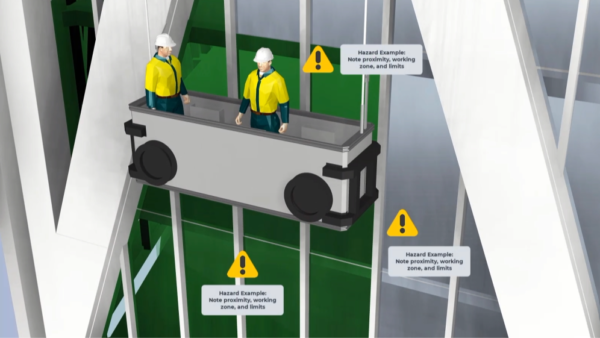
As the UK’s national standards body, BSI publishes a plethora of standards to support those operating on behalf of, or within, the UK. Here, Dan Rossiter FCIAT, sector lead at BSI as well as vice-president, technical, at the Chartered Institute of Architectural Technologists, highlights five standards that are set to have an impact on the built environment sector in 2025.
Eurocodes
With an extensive portfolio of standards relating to safety within BSI, none are more critical to the built environment than the Eurocodes, which are mandated for public projects. Since 2023, work has been ongoing to revise the Eurocodes into their second generation. The aim is for this work to be complete and to supersede the first generation by 2028.
With several parts revised in 2024 (e.g. BS EN 1997-1 on geotechnical design), and more than 20 (yes 20!) due to publish this year (e.g. BS EN 1998-2 on earthquake-resistant bridges), interest in the Eurocodes will no doubt continue to rise between now and the formal transition to the second generation.
Fire Risk Assessment for Housing
Following a request from the housing sector in 2020, BSI produced PAS 79-2 to provide provisions relating to the fire risk assessment of housing. However, following the Grenfell tragedy, the fire risk assessment landscape has evolved rapidly. This, alongside identified shortcomings within PAS 79-2, have led the national committee FSH/14 to develop BS 9792.
Intended to supersede PAS 79-2, which was withdrawn in 2021, BS 9792 will provide recommendations and examples of documentation for the undertaking and recording of fire risk assessments related to housing.
Fire Risk Assessor Competence
In further support of fire risk assessments, BSI is also developing a new standard on the competence of fire risk assessors. BS 8674 builds upon the success of the BS 867X series by establishing the competence (skill, knowledge, experience and behaviours) individuals undertaking general fire risk assessments must attain.
Construction Product Competence
Continuing the theme of competence, further work has been underway to support manufacturers, as well as those working with construction products, such as installers. BS 8670-2, like BS 8674, extends BSI’s national committee CPB/1’s work on building safety competence frameworks beyond the Building Safety Act’s named dutyholders.
This standard will describe the core competencies of those working with construction products, as well as recommending how such competencies can be integrated into competence frameworks. The standard itself is due out in 2026, however, there will be an opportunity later this year to comment on it, and to shape its development.
Retrofit of Domestic Dwellings
Following the success of PAS 2035/2030, the national committee CB/401 felt it prudent to establish further recommendations around the undertaking of retrofit assessment for domestic dwellings. In doing so, BS 40104 will cover the assessment of: context; conditions; ventilation; occupancy; energy performance; and the site.
As such, it will align with the risk-based approach set out within PAS, as well as Each Home Counts.
Bonus
As part of last year’s article, I mentioned both ISO 19650-6 (Health and safety information management) as well as PAS 8700 (Modern Methods of Construction). Unfortunately, due to varying circumstances, both projects needed to find replacement technical authors, delaying their publication. Instead of repeating the virtues of these (excellent) standards, I suggest you read last year’s article and keep an eye out for launch events for both standards later this year!
And there we have it. As you are no doubt aware, these are just some of the standards that BSI is publishing this year to support the built environment sector and the wider UK economy. To discover what other standards relating to the built environment are to be published this year, keep an eye on our web page, our social media channels, and events such as our monthly built environment webinars.
Don’t miss out on information management and digital construction news: sign up to receive the BIMplus newsletter.












